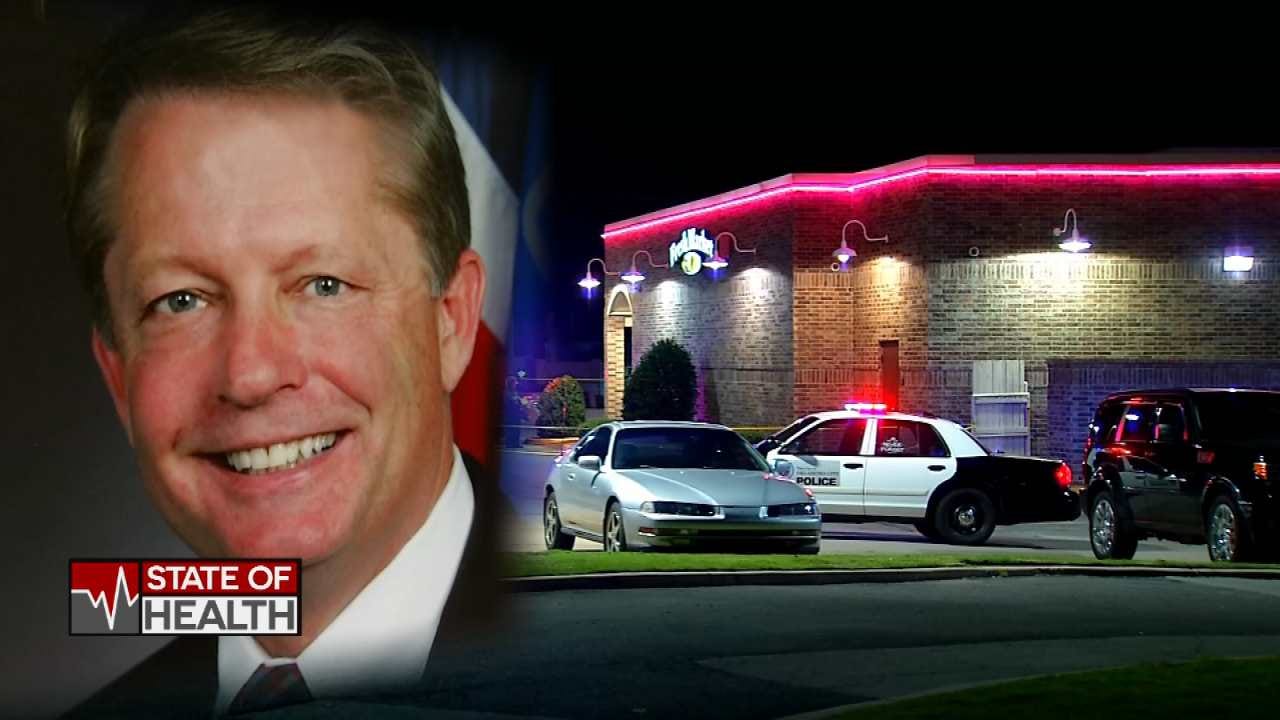Mental Health Funding Crisis Can Mean Life Or Death To Oklahomans
<p>Way too many Oklahomans struggle with mental health, and our state is struggling to find adequate funding for mental health care.</p>Friday, September 1st 2017, 6:50 pm
Like with most health outcomes, way too many Oklahomans struggle with mental health, and our state is struggling to find adequate funding for mental health care.
Francie Moss's daughter struggles with mental illness.
"Depression is a very dark place to go," she said.
Francie Moss speaks from experience. Her daughter Heather, a mother herself, tried to commit suicide in 2013.
"She didn't want to live," Francie said. "When you know your child is sick, and you're trying so hard to get to the bottom of it and to get them help, it is - it is hell on earth."
Moss has been documenting that "hell on earth," her daughter's bouts with drinking, joblessness, even homelessness. Followed by one failed treatment effort after another.
"When you don't have a job, if you don't have insurance, and you're depending on public services - state services - the outlook isn't good," she said.
It's estimated between 700,000 and 950,000 Oklahomans struggle annually with mental illness and addiction, a quarter of the population. Of those who must turn to the state for help, there are only enough resources to help one in three.
"Oklahomans can't sustain any more cuts in the area of mental health and substance abuse services," said Terri White, Oklahoma Department of Mental Health.
Lawmakers appropriated $328 million to the Department of Mental Health and Substance Abuse Services for this fiscal year. That's actually a slight increase over last year, but less than the $331 million department officials say they needed to maintain service levels, which they say had already been decimated by cuts the previous two years.
Tens of thousands of Oklahomans, they say, who have been brave enough to try and get treatment for things like depression and addiction, are now out of luck.
"These are real medical conditions. When you leave them untreated, they get worse - so what we're talking about, honestly, is life and death consequences often for people," said Terri White, Oklahoma Department of Mental Health.
No one knows that better than Cathy Costello.
"I hurt every waking minute," said mental health advocate Cathy Costello. "Every waking minute."
It's now been almost two years since her husband, Labor Commissioner Mark Costello, was stabbed to death in a Braum's parking lot by their mentally ill son Christian. Cathy Costello knows things should have been different.
Christian had been diagnosed with schizophrenia and needed intensive treatment. Which, even with the Costellos' means, he didn't get.
"He was in and out of St. Anthony's, the Crisis Center, Griffin, five times in an eleven-week period, eight months before he killed his father," Cathy said.
It is both tragic and ironic that it took committing a murder for Christian to get the treatment he needs. The court ordered he be sent to the state facility in Vinita, where his mother says he is getting good care. And has come to realize what happened.
Costello says, while she's glad he's improving, it also makes her angry - because it proves the system failed her family.
The anger fuels her advocacy. She's trying to educate Oklahomans, get them to understand that mental illness is a chemical imbalance in the brain, and as treatable as any physical ailment.
"People understand heart disease, Go Red for Women, but they don't understand mental illness, so I don't think people fund things they don't understand," said mental health advocate Cathy Costello.
And funding is critical right now, which is why advocates are also trying to convince lawmakers that funding more treatment will save money in the long run.
"The actual average cost to provide services is about $2,000 a year per person, and the consequences are much more expensive and much more devastating," White said.
Francie Moss is trying to be optimistic, hopeful that message will get through.
"There is hope, there is hope," said Francie Moss, who daughter has mental illness. "And I'm very blessed because I get to talk about my daughter, and she's still alive."
More Like This
September 1st, 2017
January 2nd, 2025
September 29th, 2024
September 17th, 2024
Top Headlines
January 5th, 2025
January 5th, 2025
January 5th, 2025













